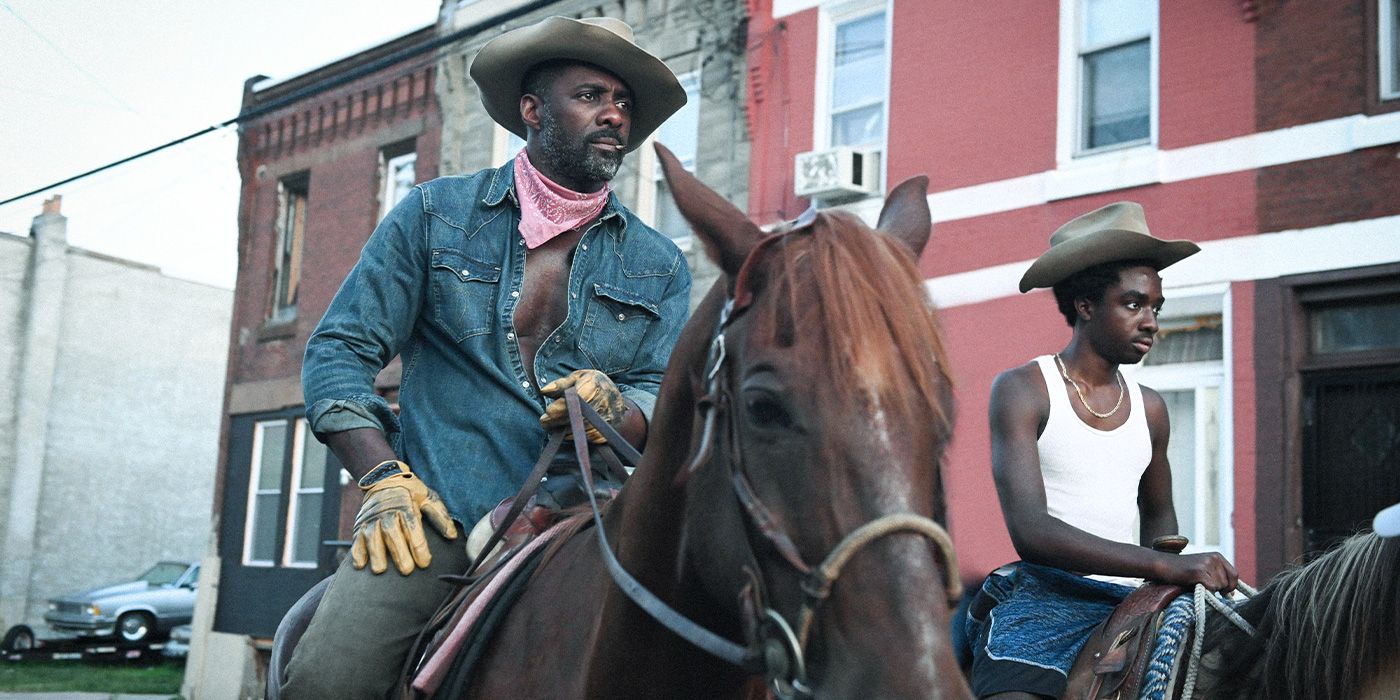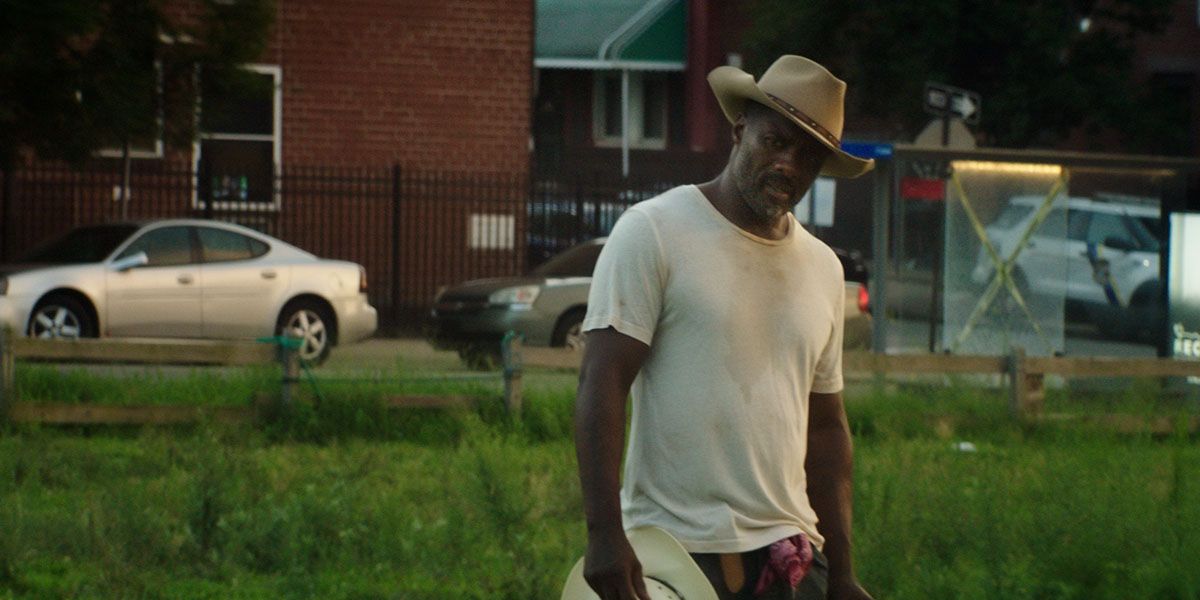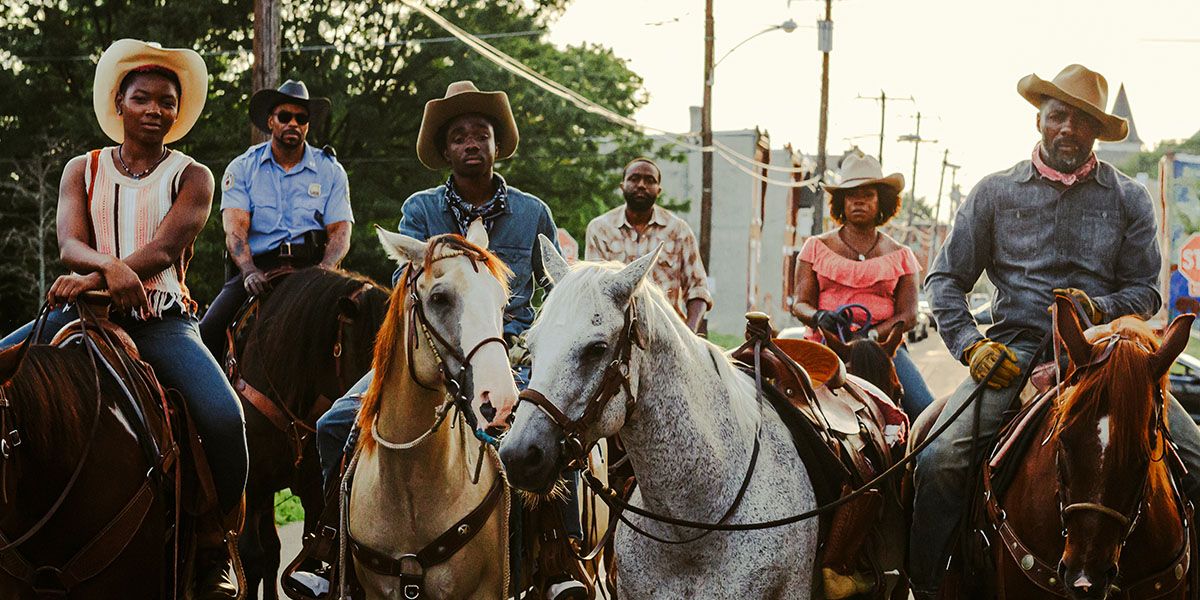[Editor's Note: This a repost of our review from the 2020 Toronto International Film Festival. Concrete Cowboy is now on Netflix.]
The urban cowboys of North Philadelphia are a real thing. While American history has whitewashed the image of the cowboy into a white man, these Black riders have taken care of horses for generations and continue to do so into the modern day even as the world radically changes around them. The intersection of their personal identity and American iconography is fascinating, but unfortunately Concrete Cowboy director Ricky Staub forces it to reside in a fairly predictable coming-of-age story. Despite strong performances from the cast, Concrete Cowboy undermines its unique world by trying to tell a broad bildungsroman that shortchanges the individuality and personality of his characters. The film leaves you wanting to know more about this world even as you quickly forget this particular story.
Cole (Caleb McLaughlin) keeps getting in trouble in his school in Detroit, so his mother takes him to live with his estranged father Harp (Idris Elba) in North Philadelphia. Cole is surprised to learn that his father and his father’s friends are modern-day cowboys. They have a stable and they care for horses. Cole reluctantly starts learning more about being a stablehand and a cowboy, but he’s also drawn to the allure of the streets, represented by his old friend Smush (Jharrel Jerome). Smush offers Cole a path of dealing, crime, but also familiarity while Harp challenges his son to work hard and stay on the straight-and-narrow. However, no way of life seems safe as Smush runs into conflict with his former boss, and the gentrifying neighborhoods threaten to push out the riders of Fletcher Street.
The central problem with Concrete Cowboy is Cole. McLaughlin gives an excellent, committed performance, but he doesn’t have much of a character to latch onto. Cole is an angry young man, he feels like his father abandoned him, and that’s about all we learn about him. Cole is rendered largely into a cipher to show the two different paths available to him: he can try to be a cowboy like his father, or he can take his chances on the streets with Smush. But either way, it’s hard to see how Cole is developing and changing. He’s more of a window on two different lifestyles, and while the film obviously prefers him to go the way of the cowboy, there’s rarely a sense of reward or growth as he moves towards that life.
Instead, the bright moments come from seeing the real riders of Fletcher Street tell their stories and participate in this depiction of their home. When you see them essentially playing themselves, you’re left to wonder why they’re not the focal point of this story in the first place. McLaughlin, Elba, and Jerome are terrific actors, but it’s not like Staub and co-writer Dan Walser crafted a narrative that was more riveting than the captivating reality of these riders. Concrete Cowboys is at cross-purposes with itself when it argues that these real-life rides are worth capturing, but only within a fictionalized coming-of-age story.
This leaves Concrete Cowboys a slow, slightly frustrating affair. On the one hand, the story of the real urban cowboys is one I want to know more about, and we get a glimpse of that in the end credits as the real cowboys we’ve seen as actors in the film talk about their experiences on Fletcher Street. But within the story that the film is trying to tell, we’re constantly confronted with a narrative that doesn’t do justice to the larger societal picture. The film’s best scene isn’t really about Cole; it’s about the cowboys talking about how their image was whitewashed and reappropriated, but even a legend like The Lone Ranger was based on the Black lawman Bass Reeves. There’s a worthwhile story to tell about the Fletcher Street cowboys, but Concrete Cowboy can never wrangle it.
Rating: C



